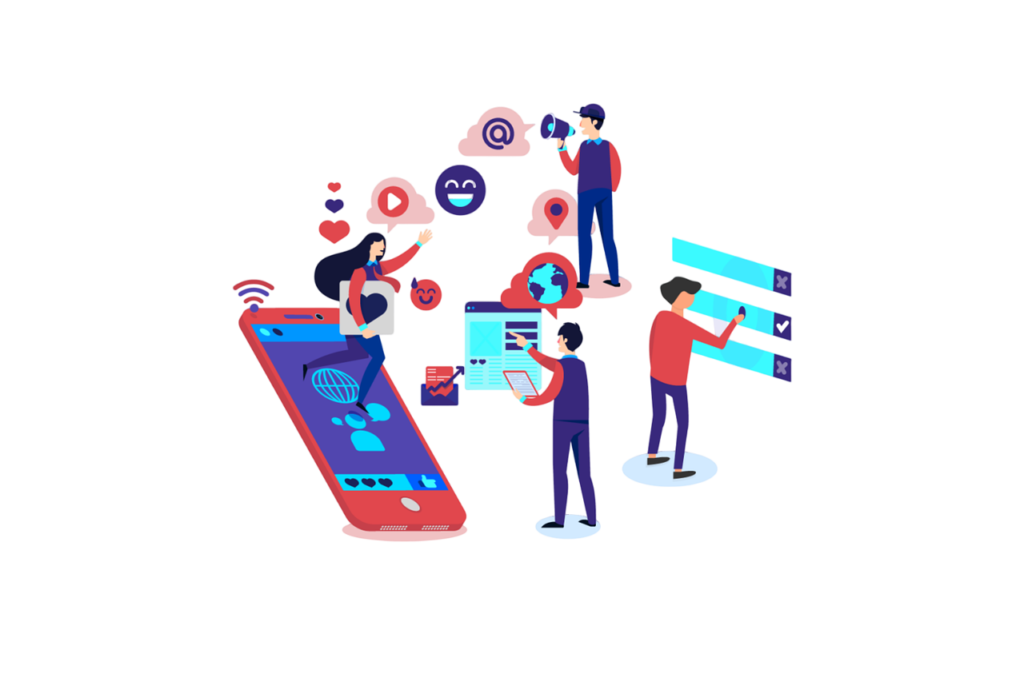Omnichannel vs Multichannel: Winning strategies to connect with your customers
Has it ever happened to you that you start searching for a product in an online store, then visit the physical store, and it feels like no one knows what you were looking for? Frustrating, right? Now imagine the opposite: you walk into the store, and everything you viewed online is ready for you, complete with personalized recommendations and a welcoming smile. That’s the power of a good omnichannel marketing strategy. Today, businesses need to be everywhere: social media, emails, physical stores, apps... But it’s not just about “being there.” What really matters is how all those channels connect to make the customer experience seamless, enjoyable, and, most importantly, memorable. This raises a big question: should you use a multichannel strategy or take the leap to omnichannel? While they may sound similar, the way they impact your customers can be completely different. In this article, we’ll break it down for you what each one means, which is right for your business, and how you can make the most of them.
1. What is Marketing Multichannel?
Multichannel marketing is like having several paths to reach the same destination: connecting with your customers. In this strategy, businesses use different channels such as social media, emails, websites, and physical stores to communicate with their audience. For example, a brand might announce a special offer on Instagram, send an email with an exclusive discount, and run Google ads at the same time. However, here's the key detail: these channels operate independently, without real integration between them.
Imagine receiving an email with a discount code, but when you go to the physical store, the cashier doesn’t know how to apply it because the system isn’t synchronized. Even though the brand is present across multiple channels, the customer experience can feel disconnected or not seamless.

Multichannel marketing works well for reaching different audiences and maintaining a presence on multiple platforms. However, the lack of integration can be a barrier when customers expect a more personalized and continuous experience.
Multichannel marketing is like having several paths to reach the same destination: connecting with your customers. In this strategy, businesses use different channels such as social media, emails, websites, and physical stores to communicate with their audience. For example, a brand might announce a special offer on Instagram, send an email with an exclusive discount, and run Google ads at the same time. However, here's the key detail: these channels operate independently, without real integration between them.

Imagine receiving an email with a discount code, but when you go to the physical store, the cashier doesn’t know how to apply it because the system isn’t synchronized. Even though the brand is present across multiple channels, the customer experience can feel disconnected or not seamless.
Multichannel marketing works well for reaching different audiences and maintaining a presence on multiple platforms. However, the lack of integration can be a barrier when customers expect a more personalized and continuous experience.
2. What is Marketing Omnichannel?
Now imagine something different: you’re browsing a mobile app and add a pair of shoes to your cart but decide not to purchase them at that moment. Later, you receive an email reminding you about those shoes with a special discount. When you go to the physical store, the salesperson already knows which model you're interested in and offers to let you try it on. All of this happens without you having to explain anything. That’s the magic of omnichannel marketing.
Omnichannel marketing takes the customer experience to the next level by seamlessly connecting all of a brand's channels. Here, it doesn’t matter if the customer uses their mobile, visits the website, or goes to the store; the experience is consistent, personalized, and designed to make them feel comfortable at every interaction.
The secret lies in integration. Customer data, such as purchase history, preferences, and behavior, is shared across all channels. This allows for a unified and, most importantly, memorable experience. For example, if a customer abandons their online cart, an omnichannel system could send an automatic reminder but also alert the customer service team so they can assist if the customer visits the physical store. This strategy not only enhances customer satisfaction but also increases the chances of conversion.
3. Key Differences Between Omnichannel and Multichannel
Although the terms "multichannel" and "omnichannel" are sometimes used interchangeably, the difference between them is bigger than it seems. Here are the key differences in a simple way:
Marketing Omnichannel
- All channels are connected.
- Ensures a seamless and consistent experience.
- Centralizes customer information, allowing each interaction to be personalized based on their preferences and behaviors.
- By offering a more personalized and consistent experience, it fosters customer loyalty and maximizes sales across all channels.
Marketing Multichannel
- Each channel operates separately.
- It offers many options to interact with the brand, but they are not necessarily consistent.
- Data is often fragmented across different channels.
- It can be effective for attracting customers across different platforms, but it may miss opportunities due to the lack of integration.
4. Benefits of Omnichannel Marketing
Adopting an omnichannel strategy not only enhances the customer experience but also has a direct impact on your business results. Here are the key benefits you can get:
Personalized Customer Experience
With an omnichannel strategy, the customer feels that the brand understands them in every interaction. From personalized recommendations to helpful reminders, each step is tailored to their needs, building trust, loyalty, and commitment to your brand.
Internal Alignment of the Company or Brand
Omnichannel not only enhances the customer experience but also improves internal processes. By unifying data and channels, sales, marketing, and customer service teams work with the same information, boosting efficiency and collaboration.
Higher Conversion Rates and better Performance
Consistency across channels reduces friction in the buying process. Customers can start their journey on one channel and seamlessly finish it on another, increasing the chances of completing a sale.
Increased Customer Retention
Satisfied customers are more likely to return. By offering them an integrated, seamless experience, omnichannel fosters loyalty, making customers not only come back but also speak highly of your brand.
Competitive Advantage
In a market where many businesses are still using multichannel strategies, implementing an omnichannel experience positions you as an innovative, customer-focused brand. It’s a powerful way to stand out from the competition.
More Efficient Use of Data
Omnichannel centralizes your customer information, allowing for better analysis of their behaviors and preferences. This not only enhances personalization but also optimizes your marketing campaigns, ensuring they reach the right audience.
5. When to Choose Multichannel?
Although omnichannel marketing is ideal for offering a unified experience, it’s not always the best option for every business. Multichannel can be an effective strategy in certain scenarios. Here’s when it might be the right choice:
1. SMALL BUSINESSES WITH LIMITED RESOURCES
If you have a startup or a tight budget, implementing a multichannel strategy can be simpler and more affordable. You can establish a presence on multiple platforms without investing heavily in advanced technology or complex integrations.
2. SPECIFIC CAMPAIGNS OR EVENTS
When it comes to limited-time promotions or unique events, a multichannel strategy can work well to reach a wider audience in a short period.
3. WHEN SIMPLICITY IS KEY
Not all businesses need a fully integrated experience. If your customers are accustomed to interacting with you on specific channels, it might be more practical to focus on maintaining those platforms independently.
4. TO TEST NEW CHANNELS
If you’re exploring new platforms, such as TikTok or a mobile app, starting with a multichannel strategy can be a good way to gauge your audience’s response before investing in more advanced integrations.
Multichannel marketing is an effective strategy for businesses that are just starting, have limited resources, or are looking for a simple solution. However, as customer expectations grow, it's important to evaluate when to transition to a more integrated omnichannel experience.
6. When and How to Adopt an Omnichannel Strategy?
1. Your business is already present on multiple channels.
If you’re already active on social media, email, physical stores, and an app, but notice that the customer experience isn’t seamless between them, it’s time to integrate.
2. You have access to customer data.
Omnichannel relies on using data to personalize the experience. If your business is already collecting information about purchase habits, interaction history, and preferences, you’re ready to implement this strategy.
3. Your customers expect a consistent experience.
If you’re receiving feedback from customers frustrated by having to repeat information or noticing that offers aren’t consistent across channels, it’s a clear sign that omnichannel can address these issues.
4. You’re in a competitive market.
When your competitors offer integrated experiences and you don’t, you might be losing customers. If you want to stand out and build loyalty with your audience, this is the way forward.


1. Centralize your customer data.
Invest in a CRM (Customer Relationship Management) or analytics tools that allow you to unify and manage all your customer information in one place. This is essential for personalizing their experiences.
2. Connect your channels.
Ensure your platforms (online store, social media, app, physical stores) are integrated. Tools like inventory management software or omnichannel chatbots can help facilitate this connection.
3. Create unique customer profiles.
Each customer should have a profile that consolidates all their activities, from social media interactions to in-store purchases. This will help you understand them better and provide personalized experiences.
4. Train your team.
Omnichannel marketing isn’t just about technology; it’s also about organizational culture. Make sure your team is aligned and trained to deliver a consistent experience across all touchpoints.
Take your strategy to the next level!
Marketing is no longer just about being present everywhere, but about how those pieces connect to create an unforgettable experience for your customers. In a world where expectations grow every day, the difference between multichannel and omnichannel could be the key factor that defines the success of your business.
While multichannel allows you to reach more people, omnichannel ensures that every interaction is memorable, personalized, and consistent. If your customers feel understood and that you’re there for them every step of the way, you won’t just attract them, but also build their loyalty.
2024 is full of opportunities to transform your marketing strategy. Whether you decide to start with multichannel or make the leap to omnichannel, the key takeaway is that it’s always about the customer experience. Because at the end of the day, what really matters isn’t how many channels you have, but how you make each customer feel unique.
Ready to evolve your strategy and wow your customers? The time to act is now!
Did you like this article?
Let me know what you think of the content of this article on my social media! What would you like to read about in upcoming articles?
Brands Trust Our Team!












SERVICES
Made with 🧡 by Marc Guerrero. All Rights Reserved | Privacy Policy | Cookies Policy
Made with 🧡 by Marc Guerrero.
Made with 🧡 by Marc Guerrero. All Rights Reserved | Privacy Policy | Cookies Policy



